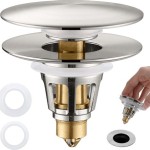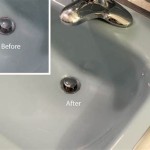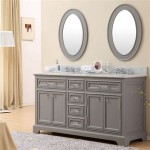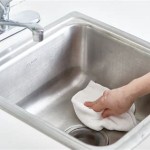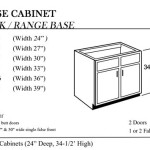Zero Water Filter For Sink: A Comprehensive Overview
Access to clean, safe drinking water is a fundamental necessity for maintaining good health and well-being. While municipal water systems are generally treated, concerns about contaminants like lead, chlorine, and other chemicals often lead individuals to seek additional filtration methods. Among the various options available, Zero Water filters have gained considerable attention, particularly their sink-mounted filtration systems. This article provides a detailed examination of Zero Water sink filters, exploring their technology, benefits, installation, maintenance, and key considerations before purchasing.
Zero Water filters distinguish themselves from other filtration systems through their multi-stage filtration process, which aims to remove a wide range of dissolved solids and impurities from water. The core technology behind Zero Water filters is their patented 5-stage filtration system. This system is designed to reduce virtually all total dissolved solids (TDS) from tap water. TDS encompasses a variety of minerals, salts, metals, and other organic and inorganic substances that can affect the taste, odor, and appearance of water, and in some cases, pose health risks.
The stages of the Zero Water filtration system typically involve the following:
- Stage 1: Coarse Filter Screen: This initial layer removes particulate matter such as dust, rust, and sediment. Its function is to protect the subsequent filter layers from premature clogging and extend the lifespan of the entire system.
- Stage 2: Multi-Layer System Utilizing Activated Carbon and Oxidation Reduction Alloy: This stage targets the removal of chlorine, which is commonly used as a disinfectant in municipal water supplies. Activated carbon attracts and traps chlorine molecules, improving the taste and odor of the water. The oxidation reduction alloy further enhances chlorine removal and can also reduce other contaminants like heavy metals.
- Stage 3: Multi-Layer System Utilizing a Distribution Layer: This layer is designed to optimally distribute the water flow across the filter, ensuring efficient filtration and consistent performance.
- Stage 4: Comprehensive Ion Exchange Array: This is the heart of the Zero Water filtration system. It utilizes ion exchange resins to remove dissolved inorganic contaminants like lead, mercury, chromium, and other heavy metals. Ion exchange involves replacing unwanted ions with less harmful ones, resulting in highly purified water.
- Stage 5: Ultra-Fine Non-Woven Membrane: This final stage acts as a last barrier, removing any remaining fine particles and suspended solids. It further polishes the water, ensuring clarity and purity.
Key Point 1: Benefits of Using a Zero Water Sink Filter
Zero Water sink filters offer several potential advantages compared to other water filtration solutions. These benefits stem from the filter's capacity to remove a substantial amount of TDS, resulting in water that meets stringent purity standards.
One of the primary benefits is the improved taste and odor of water. By removing chlorine, minerals, and other substances that contribute to unpleasant tastes and smells, Zero Water filters can make tap water more palatable. This can encourage increased water consumption, which is essential for maintaining hydration and overall health.
Another significant advantage is the removal of potentially harmful contaminants. Zero Water filters are designed to reduce or eliminate a wide range of substances, including lead, mercury, chromium, pesticides, and herbicides. These contaminants can pose health risks, especially for vulnerable populations such as children and pregnant women. By providing cleaner, safer water, Zero Water filters can contribute to improved health outcomes.
Furthermore, Zero Water sink filters can offer economic benefits. While the initial investment may be higher than some other filtration options, the long-term cost can be lower due to the reduced need for bottled water. Bottled water can be expensive and contributes to plastic waste, whereas filtered tap water provides a more sustainable and cost-effective alternative.
Convenience is another key advantage. Sink-mounted filters provide on-demand access to filtered water directly from the tap. This eliminates the need to fill pitchers or use other cumbersome filtration methods. It can also be more convenient than under-sink filtration systems that require dedicated faucets.
Finally, the TDS meter included with Zero Water filters allows users to monitor the performance of the filter and determine when replacement is necessary. This provides a level of transparency and control that is not available with all filtration systems.
Key Point 2: Installation and Maintenance Considerations
The ease of installation and the simplicity of maintenance are important factors to consider when evaluating any water filtration system. Zero Water sink filters are generally designed for relatively straightforward installation, but specific requirements may vary depending on the model and the existing plumbing configuration.
Most Zero Water sink filters connect directly to the existing faucet. The installation process typically involves removing the aerator from the faucet and attaching the filter unit using the provided adapters. In some cases, additional plumbing modifications may be necessary, especially if the faucet is not compatible with the standard adapters. It is crucial to carefully follow the manufacturer's instructions to ensure proper installation and prevent leaks.
Maintenance primarily involves replacing the filter cartridges on a regular basis. The lifespan of the filter cartridges depends on the TDS level of the incoming water and the amount of water that is filtered. Higher TDS levels and higher water consumption will result in shorter filter lifespans. The included TDS meter allows users to monitor the TDS level of the filtered water and determine when the filter needs to be replaced. Zero Water recommends replacing the filter when the TDS reading reaches 006 ppm or higher.
In addition to filter replacement, it is also important to periodically clean the filter unit to prevent the buildup of sediment and other debris. This can typically be done by rinsing the unit with clean water. Avoid using harsh chemicals or abrasive cleaners, as these can damage the filter components.
Proper maintenance is essential for ensuring the optimal performance and longevity of the Zero Water sink filter. Neglecting maintenance can result in reduced filtration efficiency, decreased water flow, and potential contamination.
Key Point 3: Potential Drawbacks and Important Considerations
While Zero Water sink filters offer numerous benefits, it is crucial to be aware of their potential drawbacks and limitations before making a purchase. These considerations can help individuals make informed decisions and choose the most appropriate filtration system for their needs.
One potential drawback is the relatively slow filtration rate compared to some other filtration methods. The multi-stage filtration process can take longer to produce filtered water, which may be inconvenient for individuals who require large volumes of water quickly. This is largely due to the fine pore size of the filter layers.
Another consideration is the cost of replacement filter cartridges. While Zero Water filters can be more economical than bottled water in the long run, the ongoing cost of replacing the filters can be significant, especially for households with high water consumption or high TDS levels in their tap water. It is important to factor in the cost of replacement filters when evaluating the overall cost of ownership.
Furthermore, Zero Water filters remove virtually all dissolved solids, including beneficial minerals like calcium and magnesium. While this results in highly purified water, some individuals may prefer to retain these minerals for their potential health benefits. In these cases, other filtration systems that selectively remove contaminants while retaining beneficial minerals may be more appropriate.
The effectiveness of Zero Water filters can also be affected by certain water conditions. For example, high levels of chlorine can shorten the lifespan of the filter cartridges. Similarly, water with extremely high TDS levels may overwhelm the filter system and reduce its efficiency.
It is also important to note that Zero Water filters are primarily designed for use with municipal tap water. They may not be suitable for filtering well water or other water sources that are not treated to meet drinking water standards. Well water often contains a wider range of contaminants, including bacteria and viruses, which Zero Water filters are not designed to remove.
Finally, it is advisable to have the tap water tested to determine the specific contaminants present and their concentrations. This information can help individuals choose the most appropriate filtration system and ensure that it is effective in removing the targeted contaminants.
By carefully considering these potential drawbacks and limitations, individuals can make informed decisions about whether a Zero Water sink filter is the right choice for their needs. Evaluating the specific water conditions, consumption habits, and desired level of filtration is crucial for selecting the most suitable water filtration solution.

Zerowater Zfm 400wh Zero Water Extremelife Faucet Mount Filtration System For Sink Quantity 2

Zero Water Extreme Life Chrome Faucet Mount Filtration System Zfm 400cr

Zerowater Zfm 400cr Extremelife Faucet Mount Filtration System For Sink Quantity 2

Zerowater 32 Cup Ready Read Water Filtration Dispenser

Zerowater 20 Cup Blue Plastic Water Filter Pitcher Zd 20rp At Com

The Best Faucet Mounted Water Filter Of 2025 Reviews By Wirecutter

How To Change A Zero Water Filter Easy Step By Guide

Zero Water Filter Review Dr Karen S Lee

Zerowater 40 Cup Clear Plastic Water Filter Pitcher Zbd 040 1 At Com

Culligan Zero Water Literally 0 Solids In The

